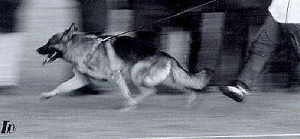CA AB 1634 Voted in by Assembly
As all of you are now aware; the Bill passed 41 to 38 on June 6.
Given below is a great summary by the Animal Council.
Please also visit their website for more information and updates.
CA AB 1634 (LEVINE, NAVA, SOLARIO; SEN. PADILLA), the "California
Healthy Pets Act" passed the Assembly Floor with the bare minimum 41
affirmative votes and 38 noes on Wednesday, June 6 after weeks of
hectic lobbying efforts ranging from retained professionals to green
grassroots. In the end, all 32 Republican votes held and 6 Democrats
crossed over. Democrat Nell Soto was absent and probably would have
been an extra affirmative vote. The 40 member Senate has a similar
ratio with only 15 Republicans, 25 Democrats and only 21 affirmative
votes needed to pass a bill on the Senate Floor. Democrats also have
majorities in all committees. Very few California legislative
districts are competitive by party, making the primary process
critically important as legislators rotate through term limits of 3
terms in the Assembly and 2 in the Senate. Current Senators all have
known past voting records and Democrat Senate President Pro Tem Don
Perata (D-9) of Oakland has been bullying moderates this year.
AB 1634 would mandate creation of a new, permanent bureaucracy for
California's 536 local jurisdictions to enact and implement an intact
permit to keep unaltered dogs and cats over 4 months of age subject
to eligibility requirements and restrictions, which have been and
will be further amended in the Senate as promised by author Levine in
response to Democrats objecting on the Assembly Floor as well as
other interest groups. So far, there are no provisions for
assessment of results over time, sunset date or accountability
standards for local agencies. AB 1634 awaits assignment to a Senate
policy committee. When a bill is amended in the second house, it
must return to the house of origin for concurrence in the later
amendments before being sent to the Governor who must actually veto a
bill to prevent it from becoming law.
CALIFORNIA HEALTHY PETS ACT web site at http://www.cahealthypets.com
now features several text boxes at the top of the home page,
accessible by clicking past Bob Barker's letter that now opens the
web site. While we could take issue with each of these topics, our
readers have specifically asked that we respond to the following
topic that concludes with a false statement:
***""Hobby Breeders" and "Amateur Breeders" are subject to the same
rules as the larger breeders.
The titles hobby breeder and amateur breeder have been coined by "low
volume" breeders in an effort to make themselves seem innocuous, but
the terms do not reflect any legal standing.
According to a 2001 analysis by the State Board of Equalization, "any
breeder making more than two sales of puppies or kittens during any
12-month period is required to obtain a seller's permit and report
the tax on those sales".
In other words, anyone in California who sells two or more animals
per year is already required by law to obtain a permit and pay taxes
on the income. The vast majority of current breeders in California do
not follow this requirement.***
We agree that the term "hobby" breeder is not a legal term of art in
California law (it often is elsewhere), and "amateur" and "low
volume" are meaningless nonsense. But none of these terms apply to
whom must have a "California Seller's Permit" – the term of art used
by the California Board of Equalization for those sellers required to
collect and remit sales tax. The threshold for sellers who are not
engaged in business is "occasional sales" covered in Regulation 1595,
essentially "Generally, a person who makes three or more sales for
substantial amounts in a period of 12 months is required to hold a
seller's permit regardless of whether the sales are at retail or are
for resale." The BOE position is that this does not mean sales of
individual pet animals sold by those not otherwise engaged in selling
pets as a business, so that "sales" would generally include all
members of a litter in the same way that the exemption for 2 garage
sales covers sale of ALL items at each of two garage sales – a garage
sale being an occasional event different from a regular flea market
vendor. The CAHPA web site conclusion claims that only one pet
animal could be sold without a Seller's Permit which is totally
incorrect. Further, sales tax is not a tax on income but a tax on
the amount of the sale, paid by the buyer and collected and remitted
by the seller. It is NOT a tax on the seller's income!
Of course, the "vast majority" of California breeders do not have
Seller's Permits, because they do not need them and SHOULD NOT have
them. Seller's Permits are intended for people making sales in the
course of business, and very few California breeders are actually
engaged in breeding as a business. Another common allegation is that
breeders are pocketing "tax free" income from sales, whereas proper
accounting for all legitimate deductions (either as hobby or Schedule
C filers) rarely results in significant taxable income.
This misrepresentation of fact – whether made by intentional malice
or reckless failure to check and cite basic facts is inexcusable when
linked to the elected legislators and primary sponsors of AB 1634.
Unfortunately, this approach permeates the entire bill and its
concept of further reducing shelter entry by placing an ongoing
burden on the relatively small proportion of owners of intact dogs
and cats.
For more information about California sales tax, see
http://www.boe.ca.gov
Or speak with a representative at 800-400-7115
*****
*a service of THE ANIMAL COUNCIL, P.O. BOX 168, MILLBRAE CA 94030
Contact us at http://www.theanimalcouncil.com
Incorporated 1991, tax exempt under IRC Section 501(c)(4)
Online news updates published sporadically since 1997.
Legislative tracking subject to change.



No comments:
Post a Comment